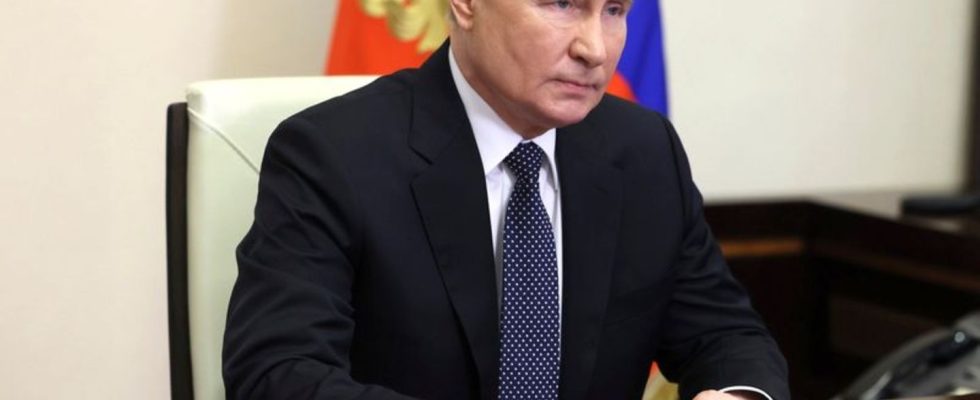Choose
Protest at twelve o’clock? – Presidential election in Russia ends
Vladimir Putin has dominated Russian politics for almost a quarter of a century. photo
© Mikhail Metzel/Kremlin Pool/Planet Pix via ZUMA Press Wire/dpa
Kremlin leader Vladimir Putin wants to appear as the most convincing election winner possible. That’s why the authorities are driving people to the polls. They just shouldn’t come at a certain time.
However, according to independent election law experts in Russia and abroad, the general conditions are neither free nor fair: the opposition is excluded, and the three approved opposing candidates are considered loyal to the Kremlin. Numerous reports show that pressure is being exerted on Russians to take part in the election. As early as Saturday afternoon, the central election management reported that more than half of the approximately 114 million eligible voters had voted in polling stations or online. Even higher percentages were reported from many regions without this being verifiable.
Hope for protests at lunchtime
Various opposition forces have called for people to vote at exactly 12 noon local time on Sunday afternoon. The resulting queues in front of the polling stations should give an impression that many people do not agree with Putin and his policies. It is feared that this could lead to arrests. The authorities warned against taking part in the action, in which they recognized “signs of extremist activity”.
As several Russian media reported, citizens in Moscow whose critical stance was known to the authorities received warning messages from unknown senders on their cell phones. According to the Meduza portal, they should go to the polls “but without queues,” these messages said.
In the first two days, there were several instances of people pouring paint into ballot boxes in protest to invalidate the ballots inside. In the Ural city of Yekaterinburg, a professor at a local university was arrested for such an attempt and sentenced to 15 days of arrest. Other cases face higher penalties. Several attempted arsons at polling stations were also reported. According to the opposition newspaper Novaya Gazeta Europa, 15 cases had been initiated by Saturday.
Russia’s election chief Ella Pamfilova said more than 210 ballot papers were destroyed by liquids poured into ballot boxes. The disruptive actions were reported from 20 Russian electoral regions. There were also eight arson attacks. Russia’s former president Dmitry Medvedev described the perpetrators on Telegram as “traitors” who helped a foreign state during a war.
Stacks of ballot papers thrown into the urn
The independent election observation organization Golos fears manipulation of the results, especially in online voting and at the voting machines. A classic method of election fraud was also reported from Krasnodar in southern Russia on Saturday: a member of an election commission threw numerous completed ballot papers into the urn.
The elections will take place in the largest country in the world, spread across eleven time zones. The polling stations in the Baltic Sea exclave of Kaliningrad will be the last to close on Sunday evening at 7 p.m. CET. The alleged results of post-election surveys and the first counting results will then be published. The total count usually runs until Monday morning. An official final result should be known on March 28th.
Occupied Ukrainian territories also have to vote
There is particular international criticism that the sham election is also being held in the occupied Ukrainian territories. Russia annexed these areas in violation of international law. In the eastern Ukrainian region of Donetsk, the electoral authority claimed that turnout had already reached 86.75 percent by Saturday evening. The Russian opposition, including Yulia Navalnaya, widow of Kremlin opponent Alexei Navalny, who died in custody, is calling on foreign countries not to recognize Putin’s re-election.

